MN100: The Hornblower Group
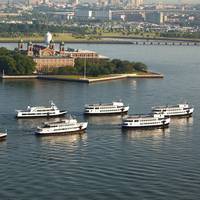
The Hornblower Group is currently in a period of major expansion, now with operations in 111 countries. Hornblower operates a fleet of about 200 vessels in three of those countries, through brands such as NYC Ferry, American Queen Steamboat Company, Alcatraz City Cruises and others. Its vessel operations range from overnight cruise ships, traditional small passenger vessels, high-speed ferries, water taxis, excursion vessels, high-thrill jet boats and even vessels for military contracts.When the COVID-19 pandemic hit…
Training Tips for Ships - Tip #20: Training in the Age of Data

As we greet 2021, it seems fitting to address a “big” topic - a topic that is ultimately going to change everything, including (and perhaps especially) training. The topic is “big data”. The goal of today’s Training Tip for Ships is to get us thinking about big data in training. If we understand it, we can lay the groundwork to take advantage of it.We are in the data age – and this is especially important for training. Everything we do can be done more efficiently and more effectively by understanding it more deeply.
Training Tips for Ships: Tip #5

– The Simple Secret to Making Randomized Exams Fair – In last month’s Training Tips for Ships, we made the important point that we must never give different people the same exam. If we use an exam over and over, our trainees will very quickly learn what questions are on the exam and share the answers with their friends. Suddenly exam scores begin going up, and time spent learning goes down – both for the wrong reasons. There are few better ways to destroy a training program.The remedy is to always provide different exams.
MarTID: The Global Maritime Training Survey
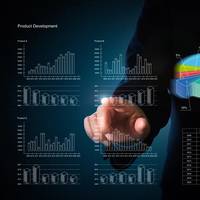
In a coming edition of Maritime Reporter & Engineering News, we explore modern training and “blended learning” techniques with Murray Goldberg, CEO of Marine Learning Systems, maker of MarineLMS. A researcher and developer of learning management systems, Goldberg’s software has been used by millions of people and companies worldwide. Here Goldberg explains the scope and important of a historic new annual survey, The Maritime Training and Insights Database (MarTID) (www.martid.org/survey).
Five Requirements for Safe Ops
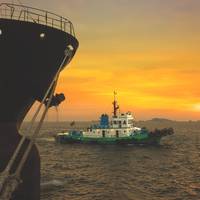
As I write this article I am flying back to my home base in Canada from the 42nd annual Interferry conference in Split, Croatia. Interferry is an outstanding conference full of dedicated and passionate ferry operators and those who serve the industry. One presentation was delivered by Captain John Wright, a Master Mariner who has spent his career in the maritime industry in a variety of roles including vessel master, marine superintendent, chief executive and general manager. All of his roles have had a focus on safety and cultural change.
Improved Safety and Training, Part II

Everyone responsible for safety or training in their organization is very aware that everything is changing in the maritime world. The worker demographic has shifted. Regulatory demand is rising and compliance is more complex. Fortunately, it is also the case that maritime safety and training has entered a renaissance period. New tools are available that improve training outcomes and allow organizations to assess the state of training and compliance with a level of insight not previously possible.
Improved Safety and Training, Step-by-step
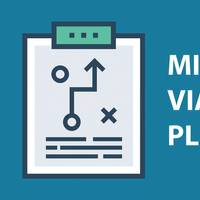
Everyone responsible for safety or training in their organization is aware that everything is changing in the maritime world. The worker demographic has shifted; regulatory demand is rising; and compliance is more complex. Accidents are more public and the consequences more severe. Ignoring this changing operational context means we are creating risk for tomorrow – a risk that increases every day until finally something gives. It has become increasingly difficult and risky to operate in today’s environment using yesterday’s tools and processes.
The Training Implications of Subchapter M
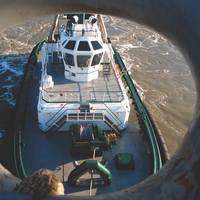
It’s a major understatement to say that Subchapter M is top of mind for workboat operators. While most would agree that the new regulations will raise the level of safety and operational sophistication, most would also likely agree that with change comes uncertainty, cost and effort. Thus it was no surprise that at October’s national meeting of the American Waterways Operators, discussions were dominated by Subchapter M and its implications for operators. As a former faculty member at a large research university and someone very focused on training in the maritime industry…
Maritime Training: Implementing CI in Familiarization Training

Continuous Improvement (CI) is the process of continually analyzing the performance of some aspect of operations, and then applying changes intended to improve that performance. It is a critical component in maintaining the health of any operation and can be applied to almost any activity. This is the third and final installment in a series of articles intended to introduce CI, and to give some practical tips for using CI in any maritime organization to improve training effectiveness and efficiency.
Maritime Training Five Years from Now: A Look Ahead
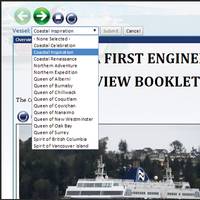
For anyone involved in maritime training, now is an incredibly exciting time full of opportunity. More than ever before, there are new advanced techniques and technologies available that can significantly improve training outcomes and access to training, while keeping costs under control. Properly deployed, these advances will improve safety - on that, the research is very clear. This article looks at training in the maritime industry and predicts how the advances will change training over the next 5 years.
Does e-Learning Work?

It’s time to put that question behind us. Once a question has been carefully analyzed and a reliable answer has been found, it is time to use this new knowledge to help answer the next series of important questions. This is the current situation in some parts of the maritime industry surrounding the question of whether eLearning works. To illustrate, some months ago there was a familiar discussion on an online maritime group debating whether eLearning works. Arguments on both sides cited anecdotes and conjecture on topics for which we already have solid answers informed by real research.
Online and Way Ahead
Calhoon MEBA Engineering School pioneers two more distance learning programs. Where others wonder if it can work, CMES is up and running – miles ahead of the pack. On the heels of its already highly successful Crowd Management Online, and Crisis Management and Human Behavior Online courses – both intended primarily to satisfy STCW training requirements for the cruise and passenger ship sector – the Calhoon MEBA Engineering School has rolled out two new National Maritime Center (NMC) approved Online Deck Officer Course Programs. The online programs designed to help deck officers renew or upgrade their licenses, Radar Renewal ($225) and Flashing Light ($100)…
Standards of Container Packing Must Be Improved
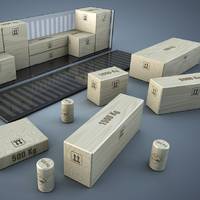
It is no surprise that the correct packing of containers is high on the agenda for industry bodies, regulators and insurers, as the consequences of unsafe and badly secured cargo are serious. In fact, of all freight transport insurer TT Club’s claims, some 65 percent feature cargo loss or damage and of these over one-third result from poor packing. Higher levels of training to maintain and improve the expertise of those employed by shippers, consolidators, warehouses and depots to pack containers is now a primary objective of a number of current industry initiatives.
ELearning: Expanding in the Maritime Industry

Like it or not, eLearning is transforming maritime training. People may argue its merits and applications, but there is no arguing that it is here to stay. As eLearning continues to expand its presence, all of us involved in maritime training are going to be faced with critical decisions about whether and how we employ it in our organizations. But do we know enough to make informed decisions? Do we truly understand eLearning, its strengths, its limitations, and how it is best applied? This is the second in a series of articles which examines eLearning in the maritime industry.





